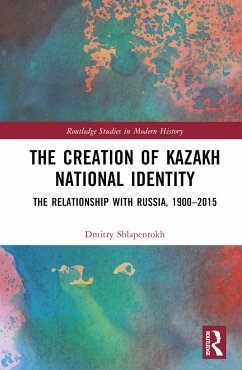This monograph utilizes three theoretical models to explain Kazakhstan's emergence as an independent state and its changing relationships with the broader world, particularly Russia, since the beginning of the twentieth century.
The book first explores the construction of Kazakh national identity and the ways in which intellectuals appealed to history to substantiate their claims about Kazakhstan's future. Secondly, the narrative demonstrates that not all segments of totalitarian machinery work in unison. While terror reached its peak in the 1930s, cultural and ideological control was not as rigid as it would become in the late 1940s and early 1950s. Most importantly, the work is grounded in the study of the social universe. The book introduces the notion of "cosmos," the peculiar connections between social, economic, and political forces. While not necessarily directly dependent on each other, they nevertheless created a unique interplay among the segments of societalstructures and the state's relationship with the wider universe. Taking this framework as the point of departure, this research analyzes Kazakhstan's "multi-vectorism" as uniquely fit to contemporary global arrangements, when no global power dominates, and the lines between friend and foe are blurred.
This compelling approach to Kazakhstan's history will appeal to postgraduate students and scholars in Russian history and world history.
The book first explores the construction of Kazakh national identity and the ways in which intellectuals appealed to history to substantiate their claims about Kazakhstan's future. Secondly, the narrative demonstrates that not all segments of totalitarian machinery work in unison. While terror reached its peak in the 1930s, cultural and ideological control was not as rigid as it would become in the late 1940s and early 1950s. Most importantly, the work is grounded in the study of the social universe. The book introduces the notion of "cosmos," the peculiar connections between social, economic, and political forces. While not necessarily directly dependent on each other, they nevertheless created a unique interplay among the segments of societalstructures and the state's relationship with the wider universe. Taking this framework as the point of departure, this research analyzes Kazakhstan's "multi-vectorism" as uniquely fit to contemporary global arrangements, when no global power dominates, and the lines between friend and foe are blurred.
This compelling approach to Kazakhstan's history will appeal to postgraduate students and scholars in Russian history and world history.









